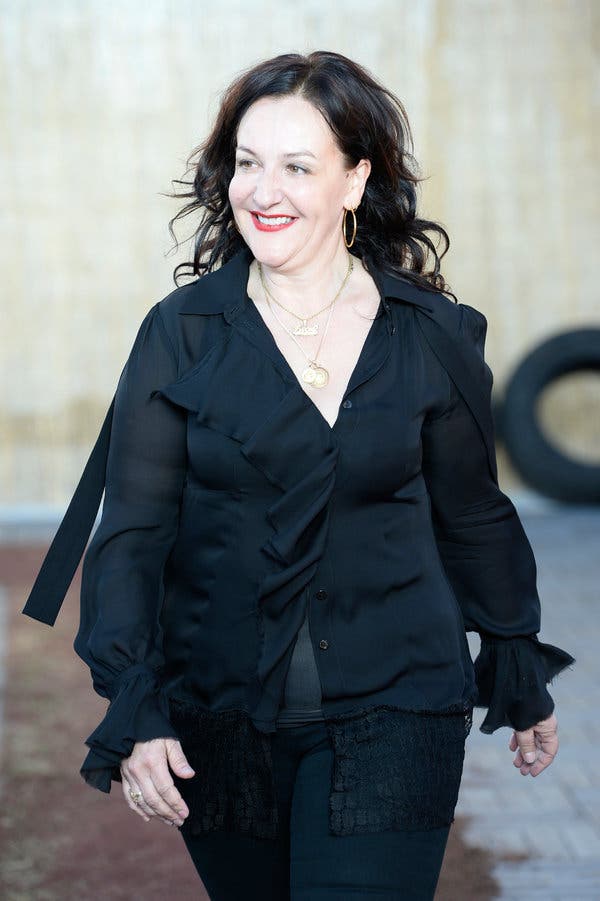
CreditFernanda Calfat/Getty Images
In the fall of 2016, Sophie Theallet, a French designer who founded her namesake label in New York in 2007, was feeling a burst of momentum. She had been heralded as a champion of inclusivity after her graceful fall collection, shown at New York Fashion Week in February, and had a campaign planned for spring 2017 that featured such women as Selah Marley, a daughter of the musician Lauryn Hill, and Sarita Choudhury, the actress.
Michelle Obama had worn her clothes. She was as excited as she had been when she won the CFDA/Vogue Fashion Fund award in 2009. Her moral and creative values were in sync.
And then, in November 2016, she wrote a letter and posted it on Twitter. In it, she wrote that she could not support the “racism, sexism and xenophobia unleashed” by the Trump campaign.
Further, she wrote, as someone “who celebrates and strives for diversity, individual freedom, and respect for all lifestyles, I will not participate in dressing or associating in any way with the next first lady.”
She became the unwitting face of what could have been termed “fashion against Trump.” Three years later she is only beginning to recover from the results, with a new line, Room 502; a new approach to fashion; and a new life, in Montreal.
You remember all of those well-known personalities who threatened to move to Canada after Donald Trump was elected, including Lena Dunham, Snoop Dogg, Bryan Cranston and Chelsea Handler? Here’s someone who, for her own, more nuanced, reasons, actually did it.
“People have been so welcoming,” said Steve Francoeur, Ms. Theallet’s husband and business partner (who is Canadian but left the country when he was 18). “They want to know you, and really embrace you.”
This is what happened.
After the letter was covered in The Los Angeles Times, Ms. Theallet said she received threatening phone calls, letters and social media posts, including one that showed “a shirtless, tattooed, bearded man holding a semiautomatic weapon with the message ‘We are watching you Sophie Theallet,’” she told the The Globe & Mail in April of this year.
“It was a never-ending stream of darkness,” she said in that article. “I received so many insults about my physique and criticism about my collections that I actually stopped caring about what strangers might think of me or my work.”
In 2018 she, Mr. Francoeur and their teenage son closed up shop and moved to Quebec.
“We came to visit a few times and said, ‘This is the place we want to live now,’” Ms. Theallet said, speaking by phone from Montreal. Even though she said she has been welcomed by the Canadian fashion world, she took a sabbatical from the industry, did some teaching at the University of Montreal and the occasional custom design (she dressed Iman for the New York premiere of “Black Panther”). And she thought about what she wanted to do.
“I did not recognize myself any longer in what fashion has become,” Ms. Theallet said. “The too much of everything.” She and Mr. Francoeur decided to “slow things down” and pare things back. And “to make a brand that goes with our life.”
That is Room 502, a limited-edition line entirely self-funded and sold only through their website, named after a room in the Chelsea Hotel where Ms. Theallet and Mr. Francoeur lived when they first moved to New York. (They have not cut ties to the city entirely and often come back to visit, staying at a friend’s apartment in the West Village.)
Based, like many new businesses including Rihanna’s Fenty, on the drop model popularized by street wear brands like Supreme, Room 502 will feature collections every three or four months that build on one another to form the basics of a wardrobe. The focus is on day wear, as opposed to any red carpet gowns. It is, Ms. Theallet said, the equivalent of a life uniform, but “extremely well done.”
The first drop, which will be introduced this week, is made up of nine deceptively simple, perfectly judged crisp cotton dresses, including a classic shirtwaist, a peasant style and a strapless tea frock, each with a short story about the woman who inspired it.
The dresses cost an average of $500 each (previously Ms. Theallet’s dresses were about $1,500) and are made in India by the Kalhath Institute, a production facility focused on scaling traditional artisanship founded in part by Maximiliano Modesti, a former studio manager at Azzedine Alaïa, where Ms. Theallet worked for 10 years.
The next drop may be shirts, then pants. The clothes will never go on sale, and when a production run has been exhausted, that will be the end of it. Ms. Theallet and Mr. Francoeur would rather underproduce than overproduce.
For the first year, a portion — they would not say how much — of every sale will go to benefit the Epic Foundation, a nonprofit focused on helping disadvantaged youth. They work out of their home and a small studio and have four freelance employees who help out as needed.
Ms. Theallet and Mr. Francoeur seem less concerned about whether the new line will become a trend in the general population than whether it will solve the problems of a few. Their ambitions have, in a way, been downsized with their life. Or upsized, depending on how you look at it. Either way, they say the atmosphere in Montreal is less toxic than it was in New York.
“I wake up in the mornings and go to the mountains, I come back and go to the mountains,” Ms. Theallet said. “We have family dinners. We have time to read books, to do research and breathe.” And they try very hard not to talk publicly about politics anymore.
Even if they can’t help but note that fashion could learn something from what they call Canada’s “spirit of inclusion.”









